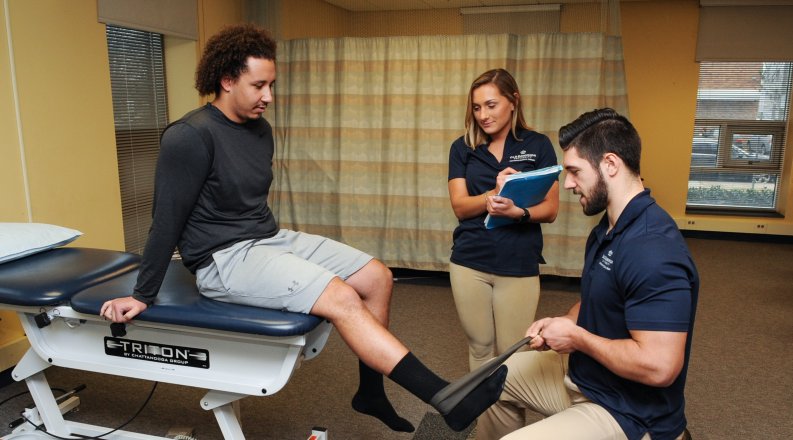The Master of Science in Athletic Training program at Old Dominion University goes beyond teaching the fundamentals of healthcare; it immerses students in real-world environments where they can apply and refine their skills in a variety of settings — from clinics to professional sports.
The program's nationwide scope allowed Zaynah Daley to pursue her passion for professional sports by securing a placement with the Dallas Wings, a WNBA team based in her desired location. This placement was not only geographically ideal for Daley but provided her with a rich landscape of professional experiences. From managing athlete nutrition to working within team budgets, her role went beyond traditional athletic training tasks, encapsulating the multifaceted responsibilities that come with working in the high-energy world of professional sports.
Tom Campbell, director of Clinical Education, explains that the program's faculty actively engage with various healthcare and sports organizations to arrange placements that align with students' career aspirations.
"Faculty reach out to sites to ask if they'd be willing to be a preceptor for students, then a contract is worked out," he said, emphasizing the adaptability of placements that range from local clinics to national sports teams.
Taylor McCormick's experience with the Scranton Penguins provided her with hands-on responsibilities essential for any athletic trainer working in the high-stakes world of professional hockey. From preparing therapeutic baths to administering emergency care like suturing players during games, McCormick’s clinical rotation was filled with invaluable learning moments.
Mentorship plays a crucial role in the program. Alumni like Kate Fitzgerald, now serving as a preceptor, provide guidance, helping students apply their knowledge in practical settings.
"With the second-year students, I let them take the lead with evaluation and treatment and am there with them every step of the way to help if they get stuck," Fitzgerald explains. Her support bolsters students' confidence while enhancing their competence, preparing them for their future careers.
The University’s athletic training program also encourages students to engage in research. The integration of research and practical experience ensures that graduates are not just skilled practitioners but also contributors to the advancement of their field.
The program equips students with technical skills needed for success and instills in them the values of resilience and lifelong learning. It teaches the importance of balancing professional demands with personal well-being — a lesson underscored by both Daley and McCormick as crucial for maintaining a sustainable career in athletic training.
As ODU continues to expand its facilities and strengthen its partnerships within the healthcare community, the College of Health Sciences athletic training program prepares students for future challenges in their careers and inspires them to become the next generation of leaders in athletic training — giving them the tools to make their mark in exciting world of athletics.



